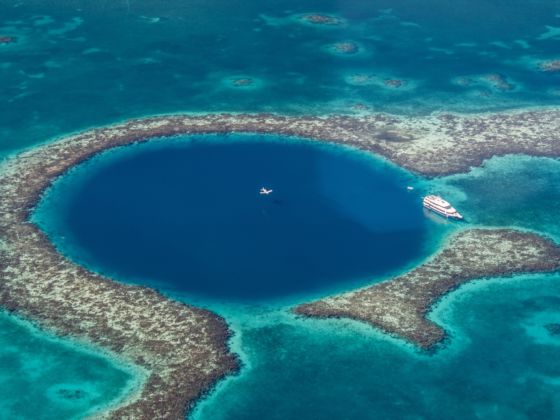Read this article en Español
THE ROAD WARRIORS program is a long term partnership between our new media school, MatadorU, and the Belize Tourism Board. It began on April 1st, 2011 and will run for an entire year.

Read this article en Español
THE ROAD WARRIORS program is a long term partnership between our new media school, MatadorU, and the Belize Tourism Board. It began on April 1st, 2011 and will run for an entire year.
Exceptional graduates from our writing and photography programs will travel to Belize for multi-month assignments. There they’ll have all travel expenses paid, plus a salary, in order to establish themselves as writers/photographers in-residence.
Each participant will have an investigative focus area such as Mayan culture, music, diving, or environmental issues, and produce articles and multimedia both for BTB and across Matador channels, as well as for other media outlets.
While it might seem inconsequential for a new media school and a country’s tourism board to partner, Road Warriors sets a precedent, essentially redefining how travel writers can work with host countries, tourism boards, and local communities to develop stories on culture and place.
Traditional press trips are useful for reaching destinations, but very limited in a number of ways, not only for participating writers, but also ad agencies / clients paying for the trips, and, of course, readers.
For writers, some of these limitations include:
For PR firms, ad agencies, and hosts, other limitations of press trips may include:
Lastly, traditional press trips (and the expectations placed on them by clients and editors) can reduce the importance of stories available to readers in various ways, including:
The common denominator for nearly all of these problems is time. Only by investing extended amounts of time in a place can a writer begin to build a relationship to it. The Road Warriors program is based on the minimum of a year’s worth of investigative work in Belize. So with that in mind, let’s look at how that affects the writers, sponsors, and readers.
On an immediate level, the Road Warriors program creates more meaningful travel writing and photography because the participants will engage place and culture in a way that wouldn’t be available to them otherwise. They’re not “seeing” a country (or better said, a very closely controlled part of it) in 5 days, then trying to write about it, as is typical with most press trips.
Nor are they having a budget travel / hostel / couchsurfing experience, where, because of time and or financial restraints, many other elements of a culture and place go unexplored.
A less immediate, but perhaps more far reaching effect is that the kind of writing and reporting that comes out of the Road Warriors program will–as we’ve been seeing over the last two years at Matador–continue to change the paradigm of what travel writing–even a sponsored hotel review can be. That it can be smart, poignant, instructive, hilarious, ironic. That it can honor places and cultures, not reduce them to commodities. That it can, above all, be transparent and real.
As dissected by David Page in the article Do Freebies Undermine Honesty in Travel Writing?, the double bind facing writers and publications today is (a) maintaining integrity while (b) trying to stay in business.
The prevailing ethic in journalism has been that “as a ‘professional’ journalist you should not be financially beholden to the subject you’re covering, but rather to the publication you’re writing for—and, by extension, your readers.” Essentially it’s the division between advertising and editorial, referred to sometimes in media as “the separation of church and state.”
The Road Warriors program is a new approach. While the sponsor does have a financial stake in the outcome of the project, what motivates them is outside the traditional thinking / dichotomy of a “paid review” equals a “good review” vs. only an “independent” review can be free of bias. They’re not looking for testimonials, but sharing people’s real, ground level experiences in the country.
“Sweden.se is the official website for Sweden. For lack of a better phrase, it’s the site that shows Sweden’s ‘image abroad.’ My job as photoblogger is to document daily life in Sweden how I’m living it, not what you’re going to see in tourist brochures or in marketing copy, but just ground level photography in Sweden.”
–Lola Akinmade, MatadorU Photography Program Faculty, Photoblogger for Sweden.se
As with Sweden’s long-term employment of photobloggers such as MatadorU faculty member Lola Akinmade, BTB’s sponsorship is itself supporting and advancing solid journalistic work.
The “presentation” or “positioning” of place, trying to make it “sound good” (“a sun-dappled village nestled in the heart of x”), is disconnected with present day reality as far as what savvy readers and consumers actually want. What matters to younger generations isn’t “packaging” but authenticity. Only the savviest marketing companies–the tiniest minority–seem to get this.
As everything becomes increasingly “mapped” on the web, what’s important isn’t that your business, your travel service, your company, your country, your brand, get only “good reviews.” What matters is that whoever writes about your brand (a) has a genuine connection to it, (b) the writing and media skills to convincingly express this, and (c) the publishing channels available through which it can reach a captive audience.FULL DETAILS HERE
Questions about the Road Warriors program? Please let us know in the comments.